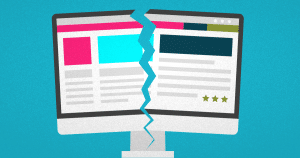These days, a beautiful, functional website is more than just a great idea for companies looking to make a splash in their industry and attract customers.
It’s an absolute must.
However, very few business owners also know enough about web development to build and fully maintain their own sites.
They also may lack the budget and resources to keep a full-time developer on staff.
Many digital-age businesses find the solutions they’re looking for when they start working with freelancers, and this is just as much the case with web development as anything else.
Learning how to become a freelance web developer and grabbing a piece of the pie for yourself could be your ticket to a bright, new professional future.
Here’s what you need to know to get started.
What is a Freelance Web Developer?
Web developers handle the nuts and bolts of building and maintaining websites.
This includes seeing to everything that makes a site user-friendly, attractive, and functional, up to and including the technical aspects of keeping the site performing well in general.
A freelance web developer is someone who performs these duties as an independent contractor.
They may do so on a full-time, part-time, or as-needed basis, but ultimately the freelancer calls all their own professional shots.
They determine their schedule, set their pay rates, and decide which projects to take on, as well as who to take on as permanent clients.
Are Freelance Web Developers Still Relevant?
The more modern consumers come to rely on search engines and other online resources for help making purchasing decisions, the more important functional, fast, user-friendly websites become.
But a business’s website is more than just a resource. It’s also its calling card — something that will make a strong impression on consumers for better or worse.
A slow, clunky, or unprofessional-looking website will have visitors clicking away in a heartbeat, so it’s important to get yours right.
However, keeping a salaried web developer on staff isn’t prudent for every business, making freelance web development a terrific alternative.
In fact, approximately 36 percent of today’s businesses outsource their web design and development tasks.
So yes, freelance web developers are still relevant today and only stand to become more so in the future, so getting on board now is a wise move for sure.
You may also be interested in: How Much Do Web Developers Make in 2023?
How to Become a Freelance Web Developer
Ready to start your own journey toward professional freedom and a rewarding web development career where you call the shots?
Here’s a closer look at how to become a freelance web developer, attract the right clients, and join the 55,320 people in America who have already turned their passion for web development into a profitable business.
1. Decide what services you’ll offer
Although web development is very in-demand as a skill right now, it’s not for everyone.
You need a solid understanding of the skills involved, as well as a true passion for the work that will carry you through when business is slow or the job is tough.
The term “freelance web development” can also cover a lot of ground, so it’s essential to know the different types of web development, as well as which types you’ll be offering as a freelancer.
Front-end web development is about ensuring a site’s visitors have an incredible user experience.
It means making sure things look great, function properly, and meet user expectations. Meanwhile, back-end web development deals with factors like databases, APIs, and various server-side processes.
Many freelance web developers specialize in one of those aspects of web development or the other. But those with the skills may decide to offer full-stack development instead — an approach that involves handling both.
2. Develop your skills
The less hands-on experience you have doing professional-level web development, the more time and effort you’ll want to spend brushing up on your skills before launching your freelancing career.
Start by familiarizing yourself with as many technologies, programming languages, and so forth as you can.
Most web development projects — especially any you’ll be doing for large or important clients — require a working understanding of multiple programming languages.
Start by mastering some options that are both useful and trendy right now. (Python is just one great example.)
Additional tech skills you’ll definitely want to master include responsive web design, search engine optimization (SEO), testing, and debugging.
Many freelance web developers also find basic micro-copywriting skills to be useful.
3. Tackle the practical aspects of getting started
Many would-be independent contractors spend so much time figuring out how to become a freelance web developer and snagging those first projects that they forget all about the practical side of starting a business until it’s too late. Don’t be that guy.
Start by considering the legal aspects of starting a business, especially regarding any local regulations freelancers in your location must abide by.
In many areas, freelancers may be required to register with the local government or obtain business licenses before they can start offering services.
How you’ll manage income and tax responsibilities is also an important consideration, as is how you’ll protect your business from liabilities of various types in the future.
If necessary, talk to a financial advisor, an attorney, or both to help you make sure you’re handling everything properly.
4. Set up the rest of your business
Anyone going into business for themselves should have a detailed business plan in place first, and this goes for freelancers, too.
After all, you can’t reach business goals you haven’t set yet, right?
Make sure you hammer out all the details of how you plan to operate, manage, and grow your business over time.
What is the mission behind your business — the why behind what you do as a service provider? What upfront expenses do you need to consider, and what is your target income?
Make sure you also settle on what rates you’ll charge your clients and how you’ll charge them (by the hour or per project).
Set rules that dictate when payment for services rendered needs to be made, how you’ll accept payment, and so forth.
5. Start gaining work experience
Although there are freelancers out there who do decide to quit their day jobs on the spot and dive into freelance web development feet first, it’s much wiser to move into that world a little at a time.
Work on gaining work experience and making a name for yourself, and then scale things up one step at a time.
Here are some ideas for accumulating experience you can use to land bigger and better jobs as you go along.
- Get your feet wet by designing through popular content management systems (CMS). Popular options today include WordPress, Wix, and Drupal.
- Redesign or revamp existing websites for clients in need of updates.
- Contribute your efforts to open-source projects.
Another great way to get a few professional projects under your belt is to target smaller clients and more manageable projects.
Build an online portfolio for another independent contractor, design a winning landing page for a solopreneur, or design a small website for a local business.
Some freelancers may even decide to offer these services on a volunteer basis at first to gain experience.
6. Build a professional website
Remember, anyone who sells products or offers online business services needs a website these days, and freelance web developers are no exception.
A website not only showcases your past successes and demonstrates what you can do for future clients but also helps you build your personal brand.
Although what you actually include as part of your website is up to you, the following are some absolute musts for helping your business grow along with you:
- A robust portfolio that showcases your best work.
- A domain name that is professional, unique, and easy for people to remember.
- Testimonials from happy past clients or industry peers.
- Practical details clients will need to know, including work schedules, contact details, and skill sets.
You may also want to include a blog frequently updated with optimized content and other essential information that helps prospective clients find you.
7. Promote your services
At this point, you’ve figured out how to become a freelance web developer.
You’re skilled and experienced enough that you’re ready to offer your services to more clients on a broader scale.
You should have a website built, as well as all the legal aspects of starting your business figured out, as well.
Now it’s time to start shopping your services around and building your client roster. Here are a few marketing channels to consider.
Referrals
Attract new clients by encouraging existing clients to spread the word via word-of-mouth.
Content Marketing
Generate niched marketing content of various types (blog posts, guest posts, infographics, videos, etc.) to position yourself as an industry authority and win the trust of prospective clients.
Social Media
Plant flags on critical social media platforms like LinkedIn, Twitter, or Facebook. Fill your feeds with valuable, entertaining content, and engage with your audience.
SEO
Every service provider should pay attention to SEO, especially when it comes to their business website. Make sure yours is fully optimized to propel your content to the top of the SERPs.
You may also be interested in these articles:
Wrap Up
Now that you fully understand how to become a freelance web developer and have taken the first key steps toward your future, it’s time to kick your efforts into high gear.
Most freelancers are solopreneurs (or at least start out that way), so they need all the help they can get — especially in the beginning.
Check out our comprehensive write-up on the best SEO tools for freelancers for a closer look at some incredible resources to try.
You’ll learn about critical options like Google Search Console, SEMRush, Moz, and more, as well as how to use them to make running your business easier!


![[ROCK NA] [EBOOK SEO] Complete Guide](https://rockcontent.com/wp-content/uploads/2024/06/banner_Search-Engine-Optimization.png)






